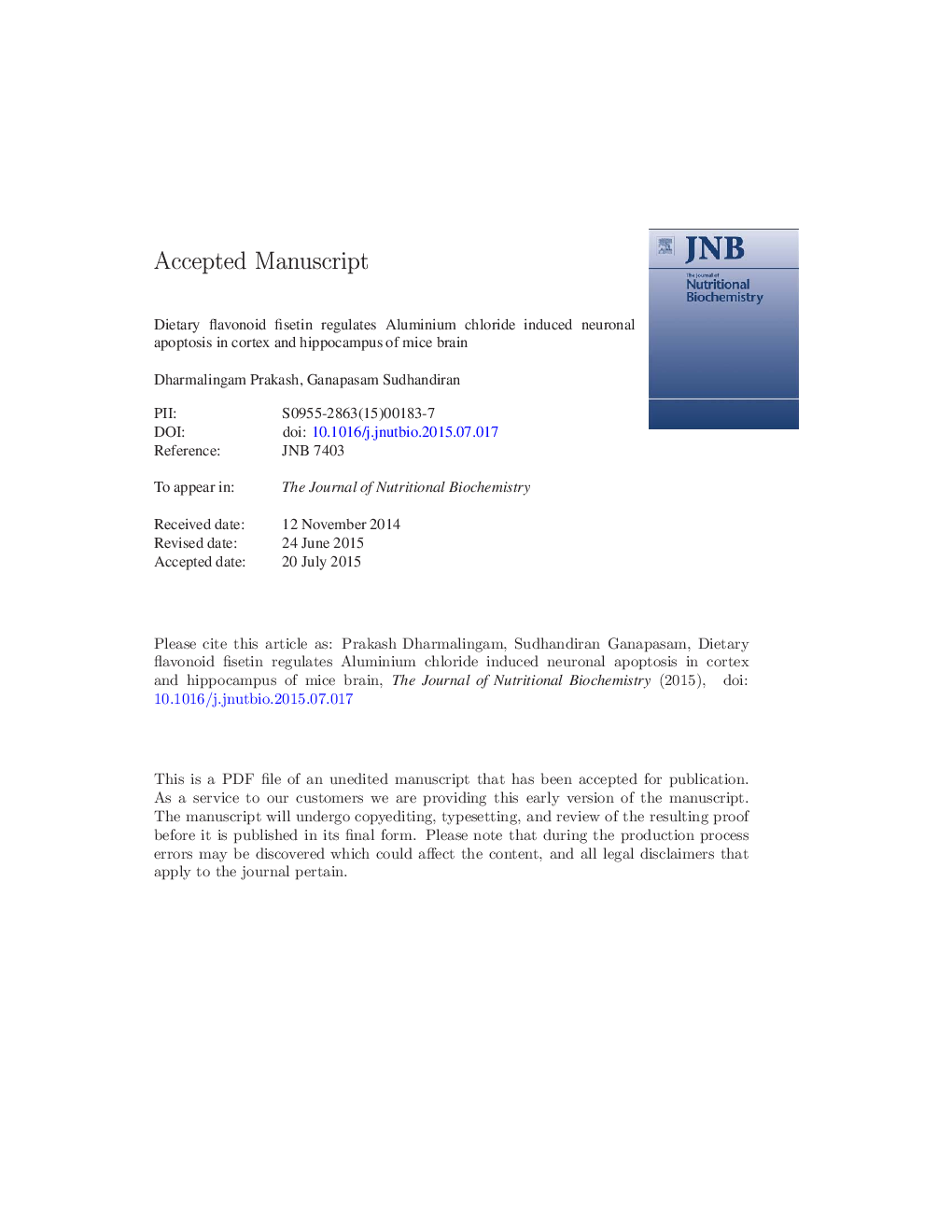| Article ID | Journal | Published Year | Pages | File Type |
|---|---|---|---|---|
| 8336767 | The Journal of Nutritional Biochemistry | 2015 | 37 Pages |
Abstract
Dietary flavonoids have been suggested to promote brain health by protecting brain parenchymal cells. Recently, understanding the possible mechanism underlying neuroprotective efficacy of flavonoids is of great interest. Given that fisetin exerts neuroprotection, we have examined the mechanisms underlying fisetin in regulating Aβ aggregation and neuronal apoptosis induced by aluminium chloride (AlCl3) administration in vivo. Male Swiss albino mice were induced orally with AlCl3 (200 mg/kg. b.wt./day/8 weeks). Fisetin (15 mg/Kg. b.wt. orally) was administered for 4 weeks before AlCl3-induction and administered simultaneously for 8 weeks during AlCl3-induction. We found aggregation of Amyloid beta (Aβ 40-42), elevated expressions of Apoptosis stimulating kinase (ASK-1), p-JNK (c-Jun N-terminal Kinase), p53, cytochrome c, caspases-9 and 3, with altered Bax/Bcl-2 ratio in favour of apoptosis in cortex and hippocampus of AlCl3-administered mice. Furthermore, TUNEL and fluoro-jade C staining demonstrate neurodegeneration in cortex and hippocampus. Notably, treatment with fisetin significantly (P<0.05) reduced Aβ aggregation, ASK-1, p-JNK, p53, cytochrome c, caspase-9 and 3 protein expressions and modulated Bax/Bcl-2 ratio. TUNEL-positive and fluoro-jade C stained cells were also significantly reduced upon fisetin treatment. We have identified the involvement of fisetin in regulating ASK-1 and p-JNK as possible mediator of Aβ aggregation and subsequent neuronal apoptosis during AlCl3-induced neurodegeneration. These findings define the possibility that fisetin may slow or prevent neurodegneration and can be utilised as neuroprotective agent against Alzheimer's and Parkinson's disease.
Related Topics
Life Sciences
Biochemistry, Genetics and Molecular Biology
Biochemistry
Authors
Dharmalingam Prakash, Ganapasam Sudhandiran,
